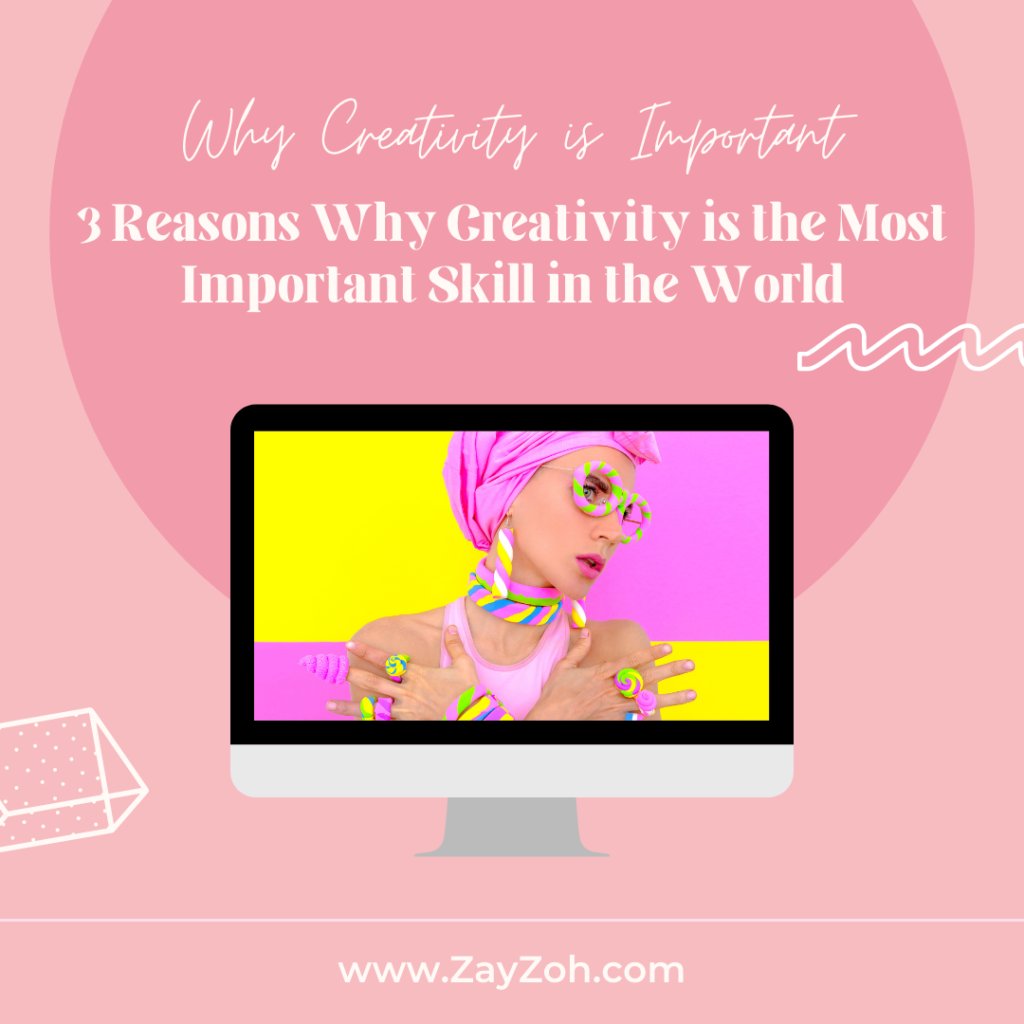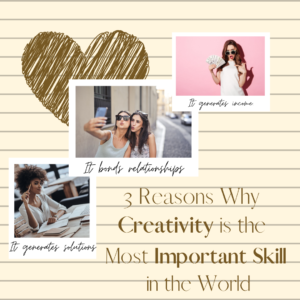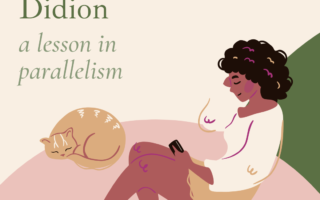
Table of Contents
Why Creativity is Important
When I was in my twenties, PBS taught me why creativity is important. I loved watching PBS specials featuring gurus like Suze Orman and Deepak Chopra teaching live studio audiences to improve their lives. Like most twenty-somethings, I was discovering my identity as an adult. And in the early aughts, the self-help industry boomed with books, videos, workshops, and CDs promising to transform me into an enlightened soul. Although I didn’t reach anywhere near Yoda status, I did learn the value of at least one crucial skill: creativity.
There is one particular PBS seminar with Dr. Wayne Dyer that taught me why creativity is essential. Dressed in his casual suit with his perfectly bald head, he gazes into the audience and announces, “There are at least ten solutions to every problem.” I sat mesmerized in front of the television. That declaration unlocked a neglected room in my brain. I stepped over its threshold and discovered endless shelves stacked with tools to help me create solutions to my anxieties.
I fancied myself a creative, handy girl, always equipped with my toolbox that I could use on-demand at home, work, the supermarket, and on jammed freeways. I constructed lists of possible ways to tackle problems and executed the most viable. Some ideas worked, and some didn’t. But even the unsuccessful ideas helped me generate better ones. This is why creativity is important: because it makes life much easier and more fulfilling. Here are three reasons why creativity is the most important skill in the world.
Creativity generates solutions.
We love creative people because they solve problems. Every invention is a solution to a problem. Buildings protect us from extreme outdoor elements; wheels allow us to travel farther faster, and soap keeps everything clean. To solve problems, you have to think outside the box, and that–by definition–is the essence of creativity. If you can think outside the box, you can create a life of endless possibilities. “Creative problem solving,” Mindtools.com says, “Is a way of problem-solving or identifying opportunities when conventional thinking has failed.” Instead of relying on conventional thinking and feeling frustrated with its limitations, lean into creativity and have the courage to try something new, quirky, or radically different.
Creativity strengthens your relationships.
Remember the last disagreement you had with a friend or loved one? What was the outcome? If you stomped away feeling bitter or misunderstood, we’ve all been there. But what if you created a different perspective about the disagreement?
Many times we obsess over being right while blaming the other person for being wrong. If we use our creativity to develop ways to bond instead of breaking our ties, think of how deep and fulfilling our relationships would be. An effective way to connect with loved ones is to create memories and do new things together to add to your love bank. Be courageous and think outside the box. Audition for a game show, take a spontaneous trip, work a jigsaw puzzle. The possibilities are endless.
Creativity increases your income. 
When you can create solutions, you can make revenue. People who value solutions to their problems are willing to pay for what you have to offer. If you are leading a business, creative leadership is critical to keep your business relevant and profitable. This means you must be open to new ideas, share your untraditional perspectives and be willing to make mistakes.
Be wary of falling into the “humility trap.” Far too often, creative people serve others for free or are scared to share and explore their insights at work, all under the pretense of remaining humble. If being modest means sitting on your ideas and closing off potential income streams, then ditch humility and befriend confidence.
If you enjoyed this article “Why Creativity is important,” then check out my podcast, Motivation To Write, and sign up for my newsletter for more on creativity.


